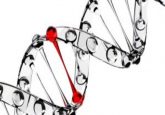RSP6KB1–VMP1 fused gene offers new disease insight in esophageal cancer

Researchers at Case Western University (OH, USA) have identified structurally abnormal genes in esophageal adenocarcinoma (EAC), a disease for which cellular mechanisms have proven elusive. The National Cancer Institute estimates that approximately 37,000 are diagnosed with esophageal cancer in the US, equating to nearly US$1.6 billion in healthcare costs.
In a study recently published in Cancer Research, patients underwent endoscopy for Barrett’s esophagus. By comparing 55 biopsy tumor samples with 49 non-cancerous samples, they identified 21 novel gene fusions in esophageal cancer tissues using RNA sequencing. The study, led by Kishore Guda (Case Western Reserve School of Medicine), identified a particular gene fusion between RPS6KB1 and VMP1 in approximately 10% of all EACs.
Patients who expressed RPS6KB1– VMP1 had a poor overall survival rate when compared with those without the fusion. RPS6KB1– VMP1 could therefore serve as an indicator of underlying pathogenesis in EAC.
“Our study also revealed additional gene fusions that were present in both the tumor and normal tissues, derived from the cancer patients,” explained Guda. “We believe that such fusions are highly interesting, as some of these can predispose to subsequent tumor development and can be attractive as early predictive biomarkers of cancer risk in this disease.”
Investigations into effects of the RPS6KB1– VMP1 gene isolated a truncated VMP1 protein that significantly enhanced the growth rate of non-dysplastic Barratt’s esophagus cells, and was ineffective in normal cellular autophagy. The truncated protein was also found to be distributed randomly within the cells, potentially aiding avoidance of normal cell turnover mechanisms. In comparison, wild-type VMP1 protein mediated normal cellular response.
Insights in how fusion genes, in particular the RPS6KB1– VMP1 gene, contribute to the molecular pathogenesis of EAC disease progression will need to be further studied.
Sources: Blum A, Venkitachalam S, Guo Y et al. RNA sequencing identifies transcriptionally-viable gene fusions in esophageal adenocarcinoms. Cancer Res. Doi:10.1158/0008-5472.CAN-16-0979 (2016) (Epub ahead of print); Case Western Reserve University press release: Fused Genes Found in Esophageal Cancer Cells Offer New Clues on Disease Mechanism.




